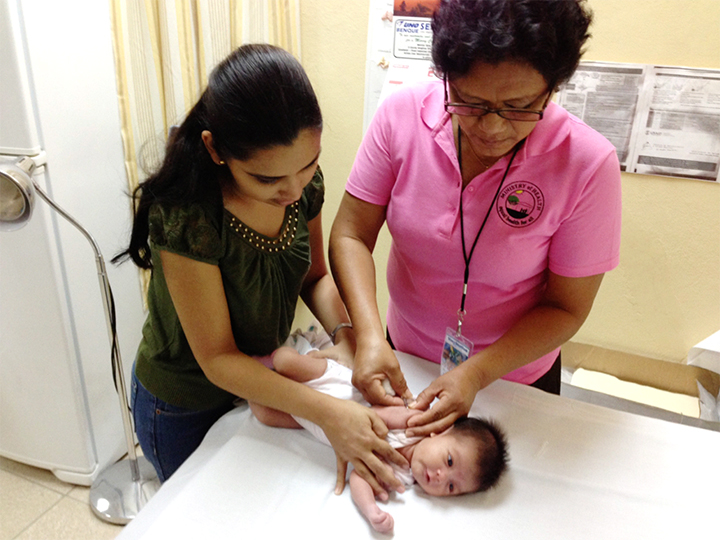As part of its efforts to find the causes for and curb maternal and neonatal deaths, the Pan American Health Organization/World Health Organization (PAHO/WHO) has launched a new network involving the Latin American Centre for Perinatology, Women and Reproductive Health (CLAP/WRH) and Latin American and Caribbean Centres for Maternal Surveillance and Research on Women’s and Neonatal Health.
According to a release from PAHO, this new network will monitor the health of women and newborns in the Caribbean and Latin America, collecting data on the causes of maternal and neonatal death as well as on the causes of complications that leave women seriously affected following childbirth. This, PAHO said, will play an important role in helping to further reduce maternal and neonatal mortality in the region.
It noted that maternal and newborn health are closely intertwined and that approximately two out of three neonatal deaths occur during the first week of life. The main causes include prematurity, congenital anomalies, asphyxia, sepsis and other infections, it added.
On average, approximately 16 women die every day in the Caribbean and Latin America from complications of pregnancy or childbirth, while 250 babies die each day before having reached 28 days of age, the release informed.
CLAP/WRH Director Suzanne Serruya was quoted as saying, “Maternal mortality has been reduced considerably in the last 20 years, but it continues to be unacceptably high, and the majority of its causes can be prevented or treated,” at the launch of the new network in Brasilia.
Meanwhile, the release said that according to Pablo Duran, regional advisor on perinatal health at CLAP/WHR, since 1990 the number of newborns who die in the first month of life has declined 55% in the region. “But we should make more efforts to prevent these deaths and conditions such as prematurity, retinopathy and asphyxia that can impact negatively on health and quality of life. The CLAP Network will help assess the use and impact of cost-effective interventions and will monitor conditions that help reduce preventable deaths and that affect the quality of life of newborns,” he was quoted as saying.
However, while overall the region has seen reductions in the number of deaths of newborns and mothers, Guyana continues to have an unacceptably high rate of maternal mortality. Observers note that it could benefit significantly from the new monitoring system.
Meanwhile, PAHO stated that the CLAP Network builds on a collaborative effort in which 22 institutions in 12 Latin American countries began in 2012 to use a new component of the Perinatal Clinical History (HCP), which contains data on pregnant women and their children from the first prenatal visit until after delivery. The new component, introduced into the Perinatal Information System (IAPA), makes it possible to monitor severe maternal health events. The CLAP Network will now try to expand that collaboration to more institutions and countries.
More than 50 hospitals, health institutes, universities and WHO collaborating centres in over 25 countries of the Americas have been invited to become part of the new network, the release said.






